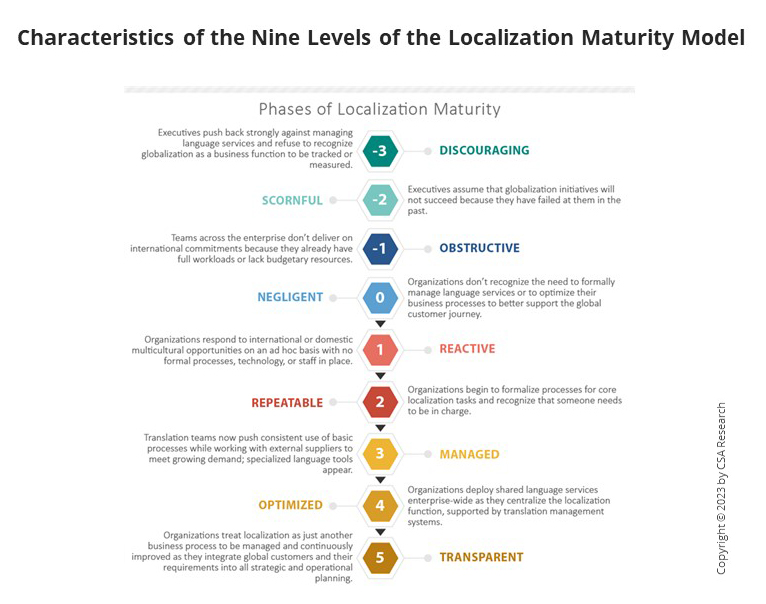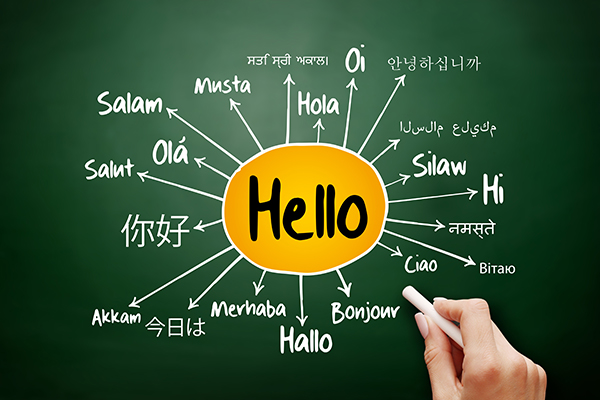Why translate? This is probably the question we get asked the most in the translation industry. Which is why in this article we would like to take a closer look at the reasons why translations are still important for your international success.
But before we begin, let's take a look at the facts:
- Three out of four consumers are more likely to buy a product if it is available in their mother tongue (source CSA)
- Austria is an exporting nation. This makes marketing your products and services in the languages spoken by your customers all the more important
- If you want to be successful with an e-commerce enterprise, the CSA states that you will need at least 14 languages to reach out to about 90% of the online business community
- In the EU, documentation in the national language is mandatory in many areas
These points already show very clearly why it is important to consider having certain documents–especially your own company website–translated.
But what are the challenges and why do many companies shy away from it?
- Huge workload when translating into different target languages
- Different departmental requirements
- Translation projects comprise a global supply chain that requires a great deal of intercultural communication and intuition
- Information must be collected centrally
- Large translation volume for many target languages (24 official languages in the EU alone)
- Incorporating changes into every language is time-consuming
- Quality in the target languages must be good, but can rarely be checked internally
- Higher costs
What can you do to tackle these challenges?
- Multilingualism needs a clear company-wide strategy
- We recommend working with experts
- Translations can be outsourced and handed over to competent translation partners

By outsourcing the translation, you can easily pass on the workload that comes with multilingual content to experts in a translation agency. One of the benefits here is that all of your information is collected and managed centrally. At the same time, critical points such as quality control and communicating with the various stakeholders in the translation process are handled reliably and professionally. You will also save costs in the long-term thanks to a well-managed translation process that also includes the storage of your data in a translation memory (TM), which allows texts that have already been translated to be reused in later documents, thus considerably increasing your efficiency. Using a tool such as Trados Studio, the world's leading translation software, saves you between 30 and 60 percent in terms of time and costs, depending on the type of text.
Why translate? How do the professionals do it?
How do internationally successful companies make the challenge of translation effective in the long term? An in-depth analysis confirms our experience that a well-designed strategy is indispensable. What's more, the support of experts and the partial or complete outsourcing of the translation work itself are a proven approach in order to proceed as efficiently as possible.
Studies and surveys made by Fortune 500 companies, which are naturally global and therefore multilingual, highlight the following advantages of introducing a central localization strategy:
- Higher quality (24%)
- Cost savings (19%)
- Improved opportunities over competitors (15%)
- Compliance with specifications (14%)
Overall, 52% of the companies surveyed have a clear, company-wide strategy for global content. In other words, the professionals are well aware that centrally managed processes are more effective and efficient, and that translation is essential for international success. In addition, clearly defined processes lead to consistent output and thus also deliver potentially higher rates of repetition during content creation and translation, which in turn saves costs.
So much for the facts, but how do you get from a monolingual website to your individual company-wide global strategy?
If you do not yet have a concrete idea of how to navigate this path, don't worry: you're not alone. "Localization maturity" is the phrase used by the CSA to describe this journey towards professional multilingualism.

Through a combination of professional consulting, best practices, training, services, and software, you can steadily climb up each rung of the localization maturity ladder.
The following steps bring you to your goal of achieving your own company-wide strategy:
- Analyze, validate, standardize, and define your specific business language
- Create a uniform company terminology
- Create, manage, maintain, and distribute your standardized multilingual information
- Set up and manage efficient translation processes
- Automatically reuse existing translations and manage changes
- Work with coordinated workflows
- Ensure the desired quality, for example through in-country reviews
- Involvement of all stakeholders
We at Eurocom are happy to support you on your way to implementing a professional localization strategy. We will always focus on your personal challenges and unique conditions. Simply get in touch for a non-binding consultation:
After reading this text, you may find this text on translation interesting.



